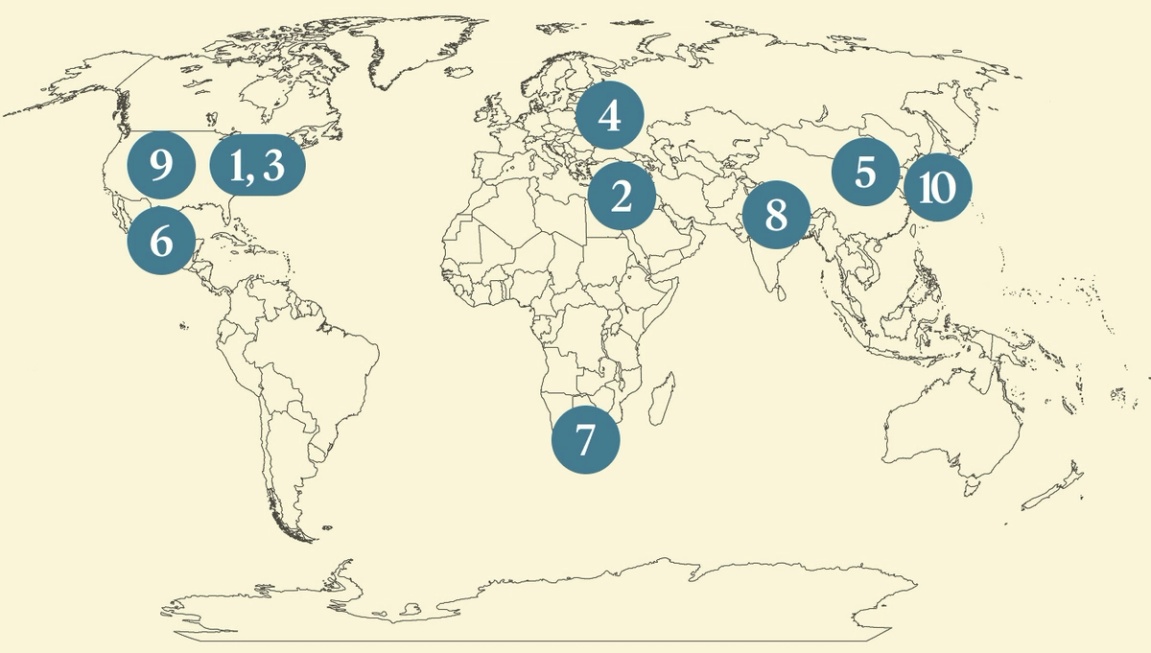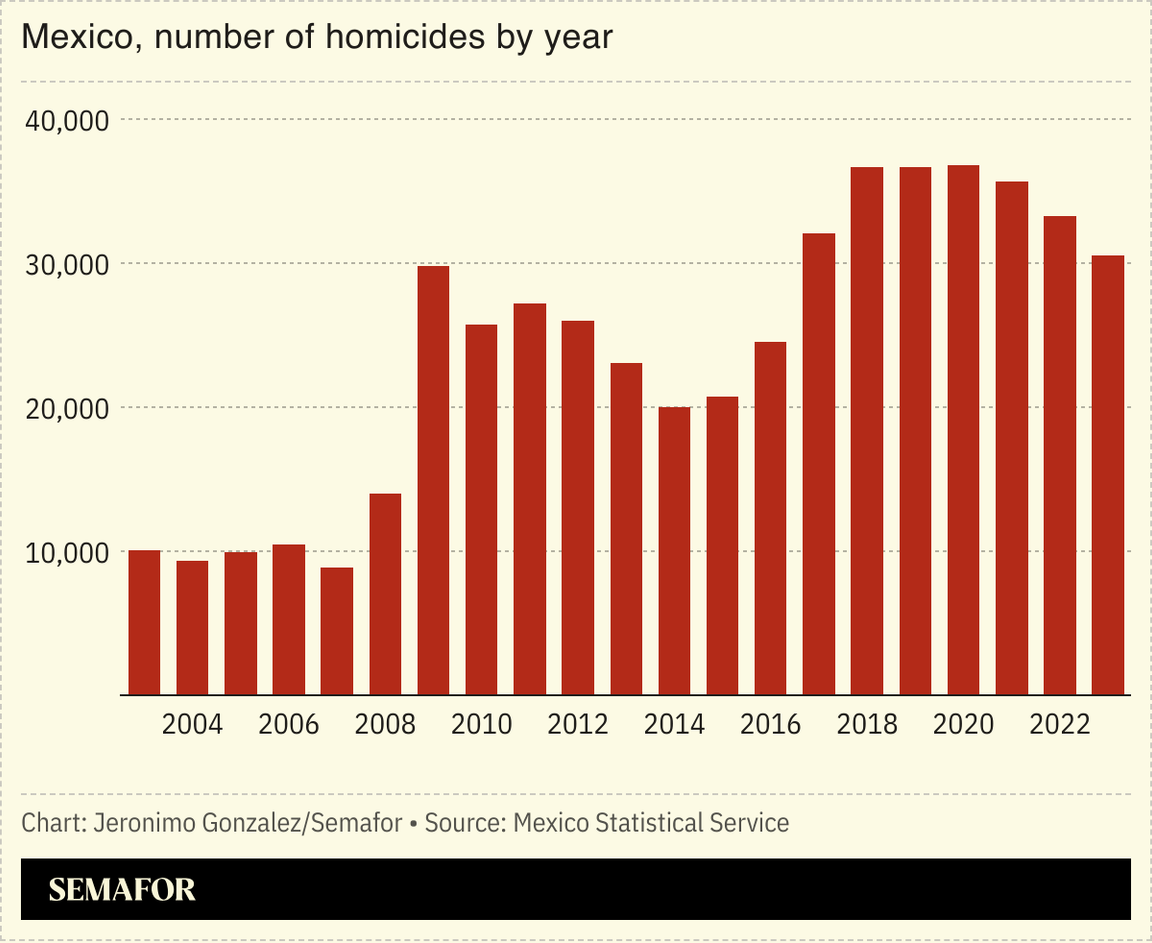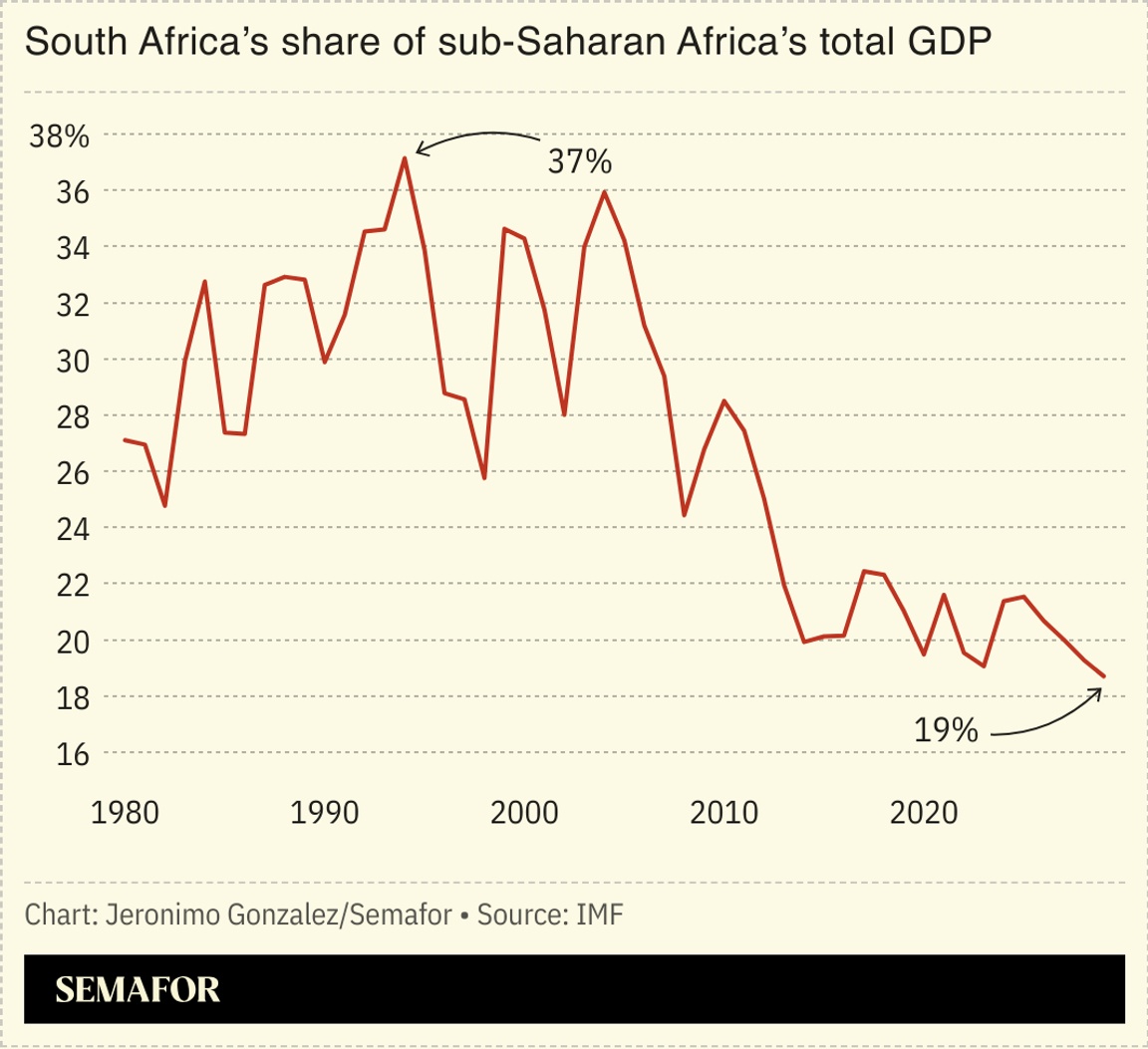| | Trump’s Big Beautiful Bill Act faces its final hurdle before becoming law, Chinese AIs gain ground o͏ ͏ ͏ ͏ ͏ ͏ |
| |  | Flagship |  |
| |
|
The World Today |  - Giant US bill’s final hurdle
- Trump touts Gaza progress
- Paramount’s Trump deal
- US halts some Kyiv aid
- Chinese AIs gain ground
- Mexico’s spiraling violence
- US pressure on SAfrica
- Dalai Lama succession
- US beehive die-off
- K-pop giants return
 Doomsday predictions trouble Japan, and a famous gallery reopens. |
|
US megabill shifts to House |
 Republicans will today look to push US President Donald Trump’s mammoth program of spending and tax cuts through the House of Representatives. Its passage, particularly ahead of a Trump-imposed July 4 deadline, is not assured, Semafor’s Principals team noted: Changes made to win over the upper chamber may be less palatable in the lower house. In any case, Republicans are gambling their future on the legislation, analysts warned. It makes steep cuts to popular health and welfare programs to pay for $4.5 trillion in tax cuts. The Financial Times’ chief US commentator said Trump’s “reverse Robin Hood budget” would push money from the poorest to the richest, and would likely lead to the loss of many GOP seats. |
|
 Ramadan Abed/Reuters Ramadan Abed/ReutersUS President Donald Trump said Israel had agreed to a 60-day Gaza ceasefire and piled pressure on Hamas to accept a deal. Israel is yet to confirm Trump’s announcement but earlier, its United Nations ambassador told the BBC that the country is ready for a truce, albeit when all surviving hostages taken on Oct 7, 2023 are home. Hamas said it was also open to a ceasefire, but stopped short of accepting Trump’s terms. The American leader urged the group to take the offer, because “IT WILL ONLY GET WORSE.” Israel’s campaign in Gaza, meanwhile, showed no sign of relenting: At least 20 Palestinians were killed in an air strike Monday, and Israel ordered further evacuations in the north of the enclave. |
|
Paramount agrees Trump deal |
 Evelyn Hockstein/Reuters Evelyn Hockstein/ReutersParamount agreed to pay $16 million to settle a lawsuit brought by US President Donald Trump during his election campaign last year. Trump’s team complained that his electoral chances had been hurt when Paramount’s subsidiary CBS aired two cuts of a comment by then-Vice President Kamala Harris, alleging that the broadcaster edited a more rambling version to make her look better. CBS called the lawsuit “meritless” and was keen to fight, but Paramount — facing a fraught merger with Skydance Media — is in a precarious position, and settling could ease the process of gaining government approval for the deal. The decision to settle is likely to cause a backlash from CBS journalists, free-speech activists, and the Democratic Party, The Washington Post reported. |
|
US halts Ukraine missile aid |
 Sofiia Gatilova/File Photo/Reuters Sofiia Gatilova/File Photo/ReutersThe US halted shipments of some air defense missiles and other munitions to Ukraine, over concerns in Washington that its own stockpiles were low. The support was promised under the Biden administration, part of a stream of weapons that have flowed to Kyiv since Moscow launched its invasion, but a Pentagon review found that US reserves were depleting. US President Donald Trump met Ukrainian President Volodymyr Zelenskyy last week and seemed to be sympathetic to sending more Patriot missiles. But the latest decision comes as Ukraine faces regular, large Russian barrages of drones and missiles at its cities, and repeated assaults on the front line: “The losses will surely be felt on the ground,” Politico reported. |
|
China catches up in AI race |
 Chinese artificial intelligence models are catching up with their US rivals. Four out of the top 10 best-performing large language models on a respected evaluation platform were Chinese, compared to five American and one European. Many users — including multinational banks, oil giants, and public universities — are shifting to Chinese-made LLMs, despite the US banning the best-known, DeepSeek, over security concerns. American AI is still seen as the gold standard, The Wall Street Journal reported, but China’s offerings are able to snatch customers by offering near-equivalent performance at vastly lower prices. China’s challenge comes despite US-led export controls on cutting-edge chips and chipmaking equipment. |
|
 Mexican officials found 20 bodies in the state of Sinaloa, which has for months been gripped by spiraling violence. A war between two factions of the powerful Sinaloa Cartel has left around 3,000 people dead or missing, and has brought economic activity to a near-standstill. Mexico’s security minister moved to the state this year and has deployed additional forces to quell the violence, but cartels remain dominant in the territory. Violence across the country has reached new heights: Since the start of the year, on average two children have been killed every day, most of them shot. Mexico’s president is “losing control,” The Mexico Political Economist wrote. |
|
S. Africa asks for more time on trade |
 South Africa asked the US for more time to negotiate a trade deal, with a tariff reprieve due to expire next week. Ties between Africa’s biggest economy and the world’s biggest one have frayed since the start of US President Donald Trump’s second term over what the White House argues are laws that discriminate against white South Africans, as well as Pretoria’s closeness to US rivals such as China and Russia. Since April, South African exports to the US have faced a 31% duty, a figure that could shoot up next week. However, Washington’s pressure on Pretoria could ultimately be helpful, The Economist argued: Some business and political leaders believe it could hasten the reforms needed to boost flatlining growth. |
|
 Can we reconnect a generation? A mental health crisis is gripping young people, with rates of depression, anxiety, and loneliness rising. As social bonds fray and digital life deepens isolation, experts are sounding the alarm and demanding action. Join Semafor at The Gallup Building to hear from Sen. Katie Britt, R-Ala., Daniel Zoltani, Executive Director of the Whole Foods Market Foundation; Sara DeWitt, Senior Vice President and General Manager of PBS KIDS; Mark Dalton, Senior Policy Director of Technology and Innovation at R Street; Stacey McDaniel, National Director of Strategy and Quality Practice for Anti-Hunger of YMCA; January Contreras, Former Assistant Secretary for the Administration for Children and Families, US Department of Health and Human Services; and Steve Bullock, Former Governor of Montana, as Semafor explores the complex drivers of youth wellbeing, highlighting opportunities to rebuild social ties, foster resilience, and develop lasting strategies to improve the mental health of young people. July 16, 2025 | Washington, DC | RSVP |
|
Dalai Lama confirms succession |
 Priyanshu Singh/File Photo/Reuters Priyanshu Singh/File Photo/ReutersThe Dalai Lama announced his succession plan. The spiritual leader of Tibetan Buddhism turns 90 on Sunday: He has been in exile in India since 1959, following a failed uprising against Chinese rule in Tibet. According to tradition, the incumbent chooses his successor, and is then — so adherents believe — reincarnated in that person’s body. But the 14th Lama has been ambiguous over whether there would be a new one at all. He has now, however, said that the institution will continue, and that he would choose his successor. He has long angered Beijing by saying that the next Lama, if there is one, would be born outside China. |
|
Pesticide-resistant mites kill bees |
 Pexels Creative Commons photo/Pixabay/CC0 Pexels Creative Commons photo/Pixabay/CC0The largest-ever die-off of commercial US beehives was driven by pesticide-resistant mites. Between June 2024 and January 2025, 62% of all managed hives died, after 55% the previous winter. New research found that almost all the hives tested positive for viruses spread by the varroa mite, which has affected colonies worldwide since the 1980s. More worryingly, all the mites the researchers looked at were resistant to amitraz, the only pesticide that still works on them without being too toxic to bees themselves. Scientists’ efforts to identify the culprit were slowed by federal funding cuts and layoffs, Science reported, meaning that the news may come too late for beekeepers to change their approach ahead of this winter. |
|
|